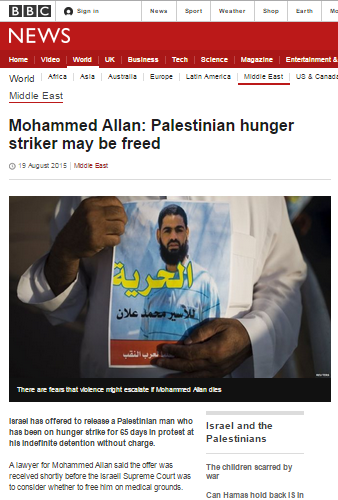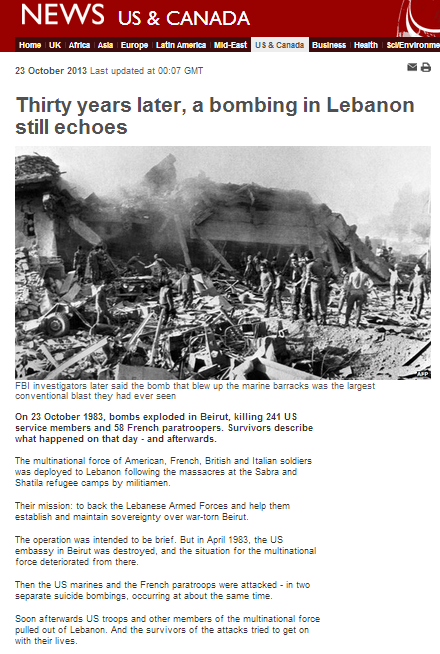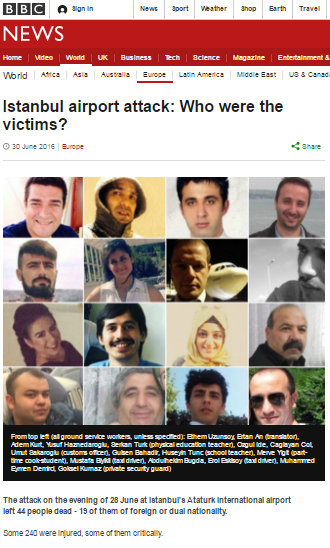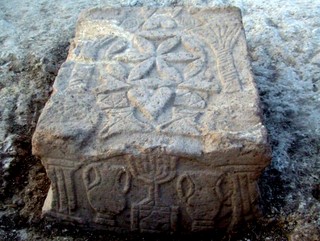The August 21st edition of the BBC World Service radio programme ‘World Have Your Say’ included an item (from 34:00 here) in which, prompted by an article from Al Jazeera, participants discussed whether the people from the Middle East and Africa arriving in Europe should be called migrants or refugees.
Among those taking part in the discussion was the BBC’s head of newsgathering, Jonathan Munro, and from 40:00 listeners heard his view on the issue.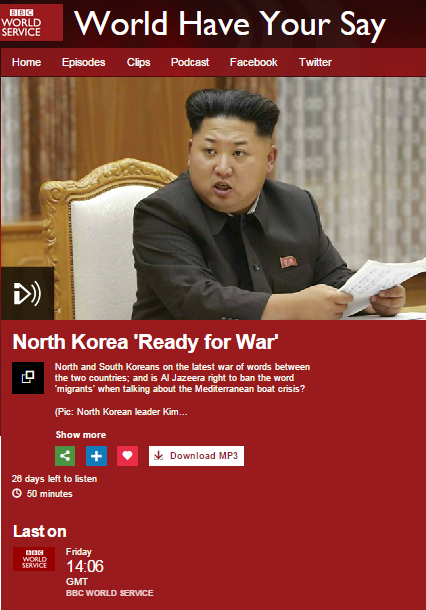
“Well first of all, Ben, I think it’s a really important discussion to have and the language is really sensitive and it’s important to get it right. We’ve seen […] huge numbers of people moving; 40,000 through the Macedonia border for example this month alone, we think. The language that we use is…we’re perhaps not in the same place as Al Jazeera on this, though I think we are in the same sort of debate as they’ve been. I don’t think there’s anything wrong actually with using the word migrant and the word refugee. The vast majority of people that we’re seeing coming through those borders – whether on land or by sea – are both migrants and refugees. The issue […] is more about dehumanisation of people in the way we cover it, which isn’t just a language issue. When you’re seeing 40,000 people coming through over a period – a relatively short period of a number of weeks – what we’re hearing on our radios and seeing on our screens are images and sounds that portray the volume of people. And the way to dehumanise them is just to do that and the way to keep them human beings – and this is a much more important point it seems to me than the vocabulary – is to talk to them, to hear their stories as individuals, as human beings as opposed to as part of a trend. […] And it’s that humanity which is, you know, actually more important than vocabulary boundaries that some broadcasters might choose to put in place. We’re not in the game of saying certain words aren’t appropriate as long as they’re accurate and they reflect the story. The more important thing for us is to keep the human beings at the heart of it.”
Unfortunately, those sentiments and intentions have not always applied to the other side of the story – the people affected by sudden influxes of large numbers of migrants – in the BBC’s reporting on African migrants in Israel. Not only have BBC audiences never heard the points of view of the residents of places such as south Tel Aviv or Eilat but the BBC has used the subject matter of African migrants to actively promote the notion of Israel as a racist society.
“It’s a confluence of being non-Jewish and non-white which causes the vociferous hatred.”
In January 2014 Kevin Connolly told BBC audiences that:
“There’s a special factor, I think, in all of this in Israel which doesn’t really apply in other countries and that’s the fact that the government looks at non-Jewish immigration – legal or illegal – as a threat to the Jewish nature of the state. Israel was created specifically to be a Jewish state in the eyes of the Netanyahu government and anything which carries some sort of demographic threat to that identity in the long term, like the influx of non-Jewish African migrants, is seen as a threat to that special status. So Israel doesn’t just look at illegal immigration like this through the same prism as other countries like the countries of Western Europe or the United States; it also looks at it through that very particular prism and sees a very particular threat to its own nature.”
No comparable ‘analysis’ was proffered to BBC audiences when, twenty months later, EU member state Slovakia said it would only take in Christian refugees from Syria. Whilst reporting on attacks on centres for asylum seekers in Germany, the BBC made sure to clarify that “[t]he attacks and protests horrify most Germans” and “most Germans have been welcoming to asylum seekers, but a small minority has been vocal in its opposition”.
Also in January 2014, BBC audiences were encouraged by Richard Galpin to view Israeli policies concerning migrants as going against international norms.
“So this is why we’re seeing these demonstrations now – the people are really concerned about what’s going to happen and feel now is the time that the international community needs to act so that the laws which the Israeli authorities are applying to people here, stopping them getting asylum effectively and trying to get them to leave Israel, that those laws are changed.”
No such suggestion appeared in BBC coverage of proposals by the UK government to imprison illegal workers and oblige landlords to evict tenants who are illegal immigrants and “the language that the politicians are using” does not appear to be an issue for the BBC when politicians are British.
Particularly interesting is a BBC report from July on changes in the approaches of the Danish, Norwegian and British governments to Eritrean migrants. Readers of that report were told that:
“A Danish Immigration Service report, from November 2014, suggested that Eritrea’s policy towards returnees had become more lenient. It was based on a fact-finding mission, but did not name its sources. […]
The report was criticised by Danish media and Human Rights Watch, which described it as “more like a political effort to stem migration than an honest assessment of Eritrea’s human rights situation”.”
Interestingly, in September 2014 when Human Rights Watch produced a report concerning Eritreans in Israel, the BBC did not make do with a one-sentence quote but published an entire article titled “Israel ‘coercing Eritreans and Sudanese to leave’” – the bulk of which was a rehashed version of HRW’s press release.
The subject of migrants and refugees is a very sensitive one wherever the story happens to take place and Jonathan Munro’s points are obviously relevant. So too, however, are the issues of consistency in BBC reporting, the avoidance of double standards dependent upon geography and the elimination of any underlying political agenda of the type all too often apparent in the BBC’s reporting on Israel’s attempts to deal with an issue now also affecting Europe.
Related Articles:
Variations in BBC portrayal of fences, walls and barriers

